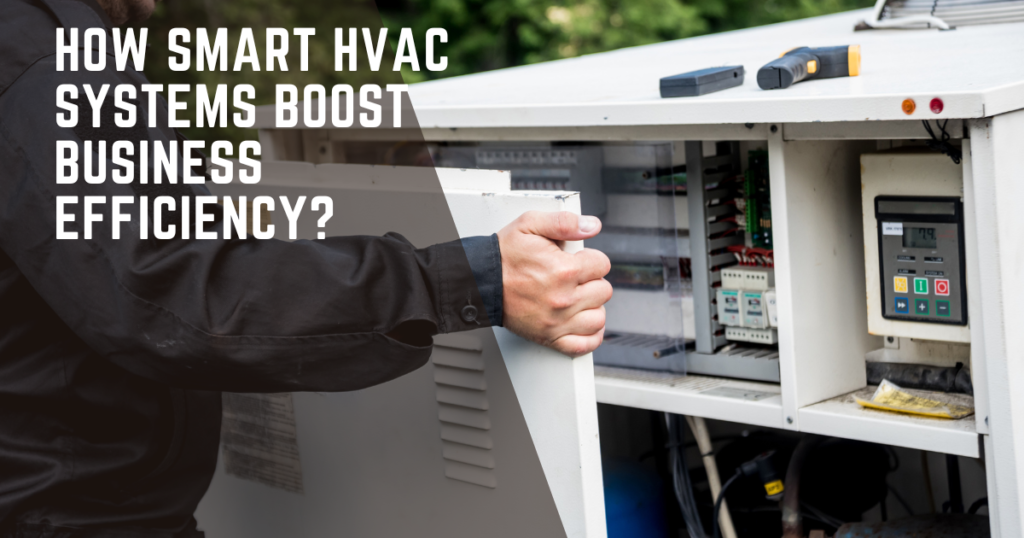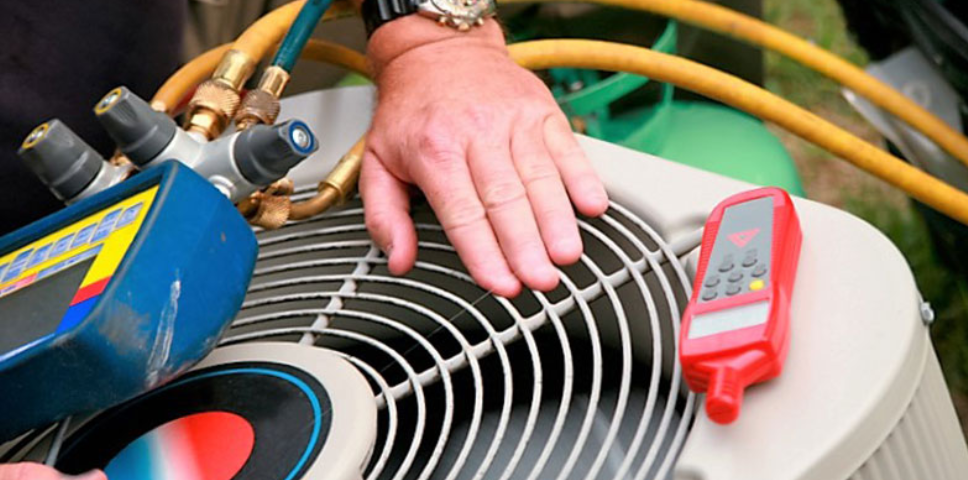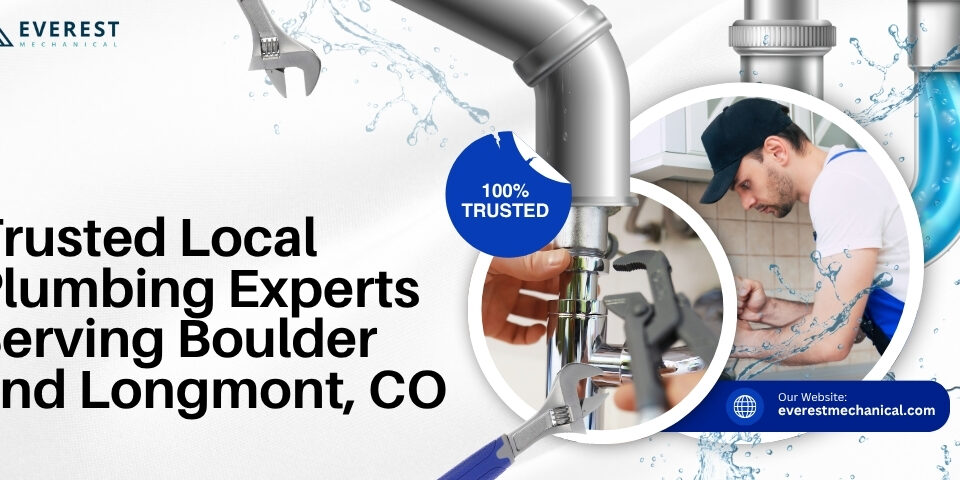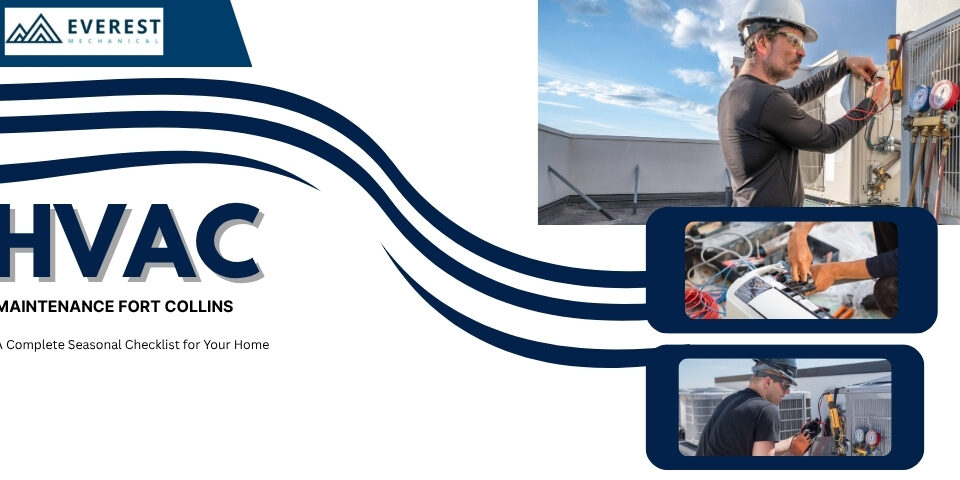- Servicing areas in and around: Estes Park, Longmont, Boulder, Arvada, Fort Collins, Denver, Loveland, and Lyons
- 8883880970
How Smart HVAC Systems Boost Business Efficiency?
Improve Commercial HVAC System’s Efficiency with Building Automation
March 27, 2024Affordable Ways to Bathroom Remodel in The Colorado
April 15, 2024Heating, ventilation, and air conditioning (HVAC) systems play a significant role in commercial buildings, that impact everything from occupant comfort to energy consumption. Traditional HVAC systems often operate with inefficiencies, leading to wasted energy and unnecessary costs. However, the emergence of smart HVAC systems is transforming how businesses manage their climate control and is helping them achieve a new level of efficiency.

The Efficiency Challenge in Traditional HVAC Systems
Traditional HVAC systems typically rely on manual controls and pre-programmed schedules. These limitations often lead to different kinds of inefficiencies such as:
- Unnecessary Operation: Buildings often remain heated or cooled during unoccupied periods, especially at night or on weekends. This wastes energy and drives up costs.
- Inconsistent Temperature Control: Manual systems struggle to maintain consistent temperatures throughout the building, leading to hot and cold spots and discomfort for occupants.
- Lack of Real-Time Data: Traditional systems offer limited insight into how efficiently the HVAC system operates. This makes it difficult to identify areas for improvement.
These inefficiencies can significantly impact a business’s bottom line and occupant satisfaction.
How Smart HVAC Systems Address Efficiency Issues
Smart HVAC systems leverage technology to overcome these limitations and achieve significant efficiency gains. They integrate various technologies to create an intelligent and data-driven approach to climate control:
- Sensors: Smart systems utilize a network of sensors to gather real-time data on various parameters. Occupancy sensors detect the presence of people in a space, temperature sensors monitor ambient conditions, and CO2 sensors measure air quality.
- Connectivity: The Internet of Things (IoT) plays an important role by connecting these sensors to a central hub. This enables remote monitoring and control of the HVAC system from a computer or mobile device.
- Data Analytics: Collected data is analyzed to identify usage patterns and optimize settings. This allows the system to learn and adapt to changing conditions and occupancy levels.
- Automation: Smart HVAC systems automate various functions to improve efficiency. Features include:
- Automatic Scheduling: The system can be programmed to adjust temperatures based on occupancy patterns, ensuring climate control only when needed.
- Occupancy Detection Adjustments: Sensors can detect when a space is unoccupied, prompting the system to automatically adjust settings to save energy.
- Weather-Adaptive Controls: Outdoor weather data can be integrated to optimize operation based on real-time conditions.
Specific Efficiency Gains
- Energy Cost Savings
Smart HVAC systems significantly reduce energy consumption through features like:
- Demand-based ventilation: CO2 sensors can be used to adjust ventilation based on occupancy levels, ensuring proper air quality without excessive energy use.
- Automatic shut-off during unoccupied periods: Sensors can detect empty spaces and automatically adjust settings to minimize energy waste.
- Optimized equipment operation based on real-time data: Data analysis allows the system to identify and address inefficiencies in equipment operation, leading to optimal energy use.
Studies show that smart HVAC systems can deliver energy savings of 20-30% compared to traditional systems. This translates to significant cost reductions for businesses.
- Improved Comfort and Productivity
A comfortable work environment is essential for employee well-being and productivity. Smart HVAC systems create a more consistent and pleasant atmosphere by:
- Maintaining consistent temperatures throughout the building: Sensors and automated controls ensure even temperature distribution, eliminating hot and cold spots.
- Providing individual zone control for personalized comfort: Some systems allow occupants to adjust temperatures in their immediate workspace for increased comfort.
- Ensuring proper ventilation for improved air quality: CO2 sensors help maintain optimal air quality by adjusting ventilation rates as needed, leading to a healthier and more productive work environment.
- Reduced Maintenance Costs
Smart HVAC systems can help with preventive maintenance by:
- Predictive maintenance: The system can analyze data to identify potential equipment issues before they become major problems, allowing for proactive maintenance and preventing costly breakdowns.
- Remote diagnostics: Remote monitoring allows technicians to diagnose problems remotely, reducing the need for on-site visits and expediting repairs.
- Extended equipment lifespan: Optimized operation through real-time data analysis can extend the lifespan of HVAC equipment, reducing replacement costs.
- additional benefits
- Enhanced occupant satisfaction: A comfortable and healthy work environment contributes to increased employee satisfaction and well-being.
- Improved building sustainability: Reduced energy consumption translates to a smaller environmental footprint for the business.
- Easier compliance with environmental regulations: Smart HVAC systems can help businesses meet environmental regulations related to energy efficiency.
Factors to consider for Implementing Smart HVAC Systems
While the benefits of smart HVAC systems are compelling, there are some considerations for businesses:
- Initial investment costs: Installing a smart HVAC system may require an upfront investment in new equipment and software. However, the long-term energy savings and reduced maintenance costs can lead to a significant return on investment (ROI) over time.
- Compatibility with existing infrastructure: Businesses need to assess whether their existing HVAC system is compatible with smart technology upgrades. Retrofitting older systems might be possible, but newer installations may be more cost-effective in some cases.
- Cybersecurity measures: As with any connected device, smart HVAC systems introduce cybersecurity considerations. Businesses need to ensure they implement proper security measures to protect the system from potential cyberattacks.
Choosing the right system and partner is important for a successful implementation. Consulting with experienced HVAC professionals like Everest Mechanical can help businesses properly go through these considerations and select a solution that best fits their needs and budget.
The Future of Smart HVAC Systems
Smart HVAC technology is continuously evolving and promises even greater efficiency gains in the future. Here are some exciting trends to watch:
- Integration with other building automation systems: Smart HVAC systems will increasingly integrate with other building automation systems, such as lighting and security controls, creating a truly intelligent and interconnected building environment.
- Machine learning for even more intelligent energy optimization: Machine learning algorithms will play a more prominent role in smart HVAC systems, enabling even more sophisticated analysis of usage patterns and real-time optimization of energy consumption.
- Voice-controlled HVAC systems: Voice assistants will likely be integrated with smart HVAC systems, allowing for user-friendly control through voice commands.
These advancements further enhance the potential of smart HVAC systems to revolutionize how businesses manage their climate control and achieve optimal efficiency.
Conclusion
Smart HVAC systems represent a significant step forward in optimizing building operations. By leveraging technology and data-driven insights, these systems deliver substantial benefits for businesses, including significant energy cost savings, improved occupant comfort and productivity, and reduced maintenance costs. As technology continues to evolve, smart HVAC systems are poised to play an even greater role in creating sustainable and efficient commercial buildings. Businesses looking to optimize their operations and gain a competitive edge should strongly consider exploring the possibilities of smart HVAC technology.
Contact Everest Mechanical today and breathe new life into your commercial building’s HVAC system.
Everest Mechanical is a professional commercial HVAC service company in Colorado having expertise in installing, maintaining, and repairing all kinds of furnaces, air-conditioning, and ventilation works.
We offer services in all areas of Colorado including:
- Denver
- Longmont
- Fort Collins
- Arvada
- Estes Park and
- Boulder
So if you are in search of a commercial HVAC service company, then just fill out the form and we will take care of the rest.




